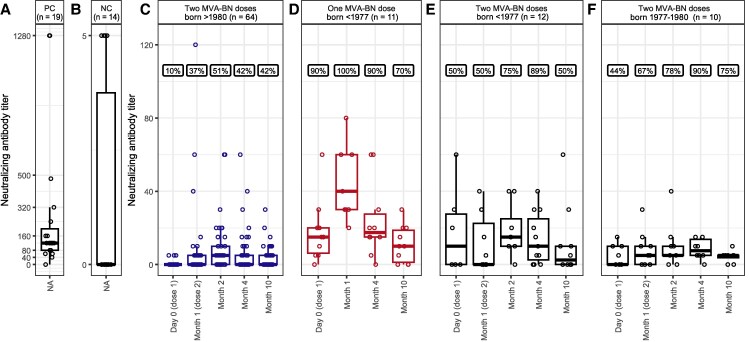Background
Mpox (otherwise known as Monkeypox) is caused by the mpox virus, and is a zoonotic disease (i.e. it is transmitted from animals to humans). The mpox virus is a member of the Orthopoxvirus genus in the family Poxviridae. It is closely related to the variola virus, which causes smallpox and has had a marked impact on human populations throughout history. The mpox virus is endemic to West and Central Africa, but have been outbreaks in Europe, see our emerging pathogens mpox page for more.
Clinically, mpox is typically characterised by fever, an unexplained acute rash, and lymphadenopathy. However, additional symptoms and complications can occur, see information from the CDC for more. The incubation period of the virus is typically 5-13 days, but can be as long as three weeks. Close personal contact with an infected individual is the most common route of transmission and limited information is available regarding mortality (Adler et al., 2022). The European Medicines Agency (EMA) has not yet approved a vaccine in Europe. However, EU healthcare has access to doses of Jynneos vaccine, which is approved by the FDA for both mpox and smallpox. These vaccine doses were donated by the USA and Canada via the European Health Emergency Preparedness and Response Authority (HERA).
There are no currently approved treatments for mpox in humans. However, brincidofovir and tecovirimat, which are approved in the USA for use against smallpox, show promise in animal studies (Adler et al., 2022).

